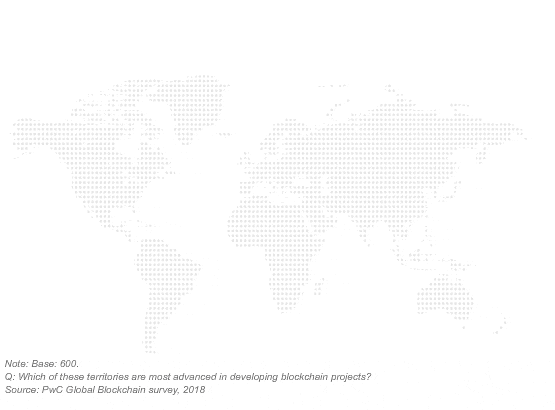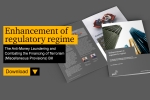The government has announced various IT projects in the recent budget? What do you think of the various measures?
The projects announced in the Budget can be classified into two categories: i) projects which are necessary to modernise the public services, showing that there is commitment from the government to continue the digitisation journey, which will help the public services to meet the needs and evolving expectations of citizens and businesses, and ii) those which will lay down the necessary foundations to further develop the ICT Sector.
I am referring here to the Data Technology Park and the measures to attract foreign campuses to Mauritius. The latter is critical to ensure that the country not only attracts and retains talents, but also builds human resource capacity locally and meets the Sector’s demands.
So, I find that the measures announced are steps in the right direction. It is also encouraging to see that the Government has allocated funds for the implementation phase of a number of projects initiated in the previous fiscal year, which shows its commitment to see those projects to completion within the set timelines - namely the Land Use and Valuation Information System, the Advanced Passenger Information System and the Central KYC.
A new Data Technology Park will see the day at Cote D’or. We have also heard about a Deep Artificial Intelligence Centre. Do you believe Mauritius is ready for this type of infrastructure?
Nowadays, we hear a lot about Artificial Intelligence (AI). This is due to the advent of the cloud, which has lowered the cost of data storage and increased compute power and the volume of data that is generated - did you know that every person generates about 1.8 megabytes of data every second? Analysing all that data is already a challenging task, and AI is the only way forward to help interpreting and making use of that data. AI is the future. Some are even predicting that it will become as ubiquitous as electricity!
So, to answer your question, YES, I believe that a Deep Artificial Intelligence Centre will be a game changer, and YES, I believe that Mauritius is ready. We have people with great skills and potential...
A word of caution, though. We have heard, budgets after budgets, projects like Technoparcs, Incubator Hubs, etc. which never saw the light. The Public - Private sector collaboration will be key, as this project should not be driven only by the Government, but also involve stakeholders from the private sector.

A Deep Artificial Intelligence Centre will be a game changer.
Do we have the necessary expertise for this?
As for all new projects of this type, we will need foreign expertise. The measures announced to attract foreign campuses to Mauritius is one that I think is key, and foreign campuses should not be restricted to universities, but also to Technology Companies like Google and Microsoft.
We have for too long debated about the supply of qualified labour in this field, and whilst we have been promoting Mauritius in the past as a Regional Education Hub, there wasn't much on offer in the field of STEM (Science, Technology, Engineering and Mathematics) courses.
Microsoft's main campaign currently is on pushing for STEM, as it believes that in pursuing STEM, “we double our potential for innovation. …” and nurture “... change-makers who are championing new ideas and changing the world.” So, the expertise may not necessarily be there, but this is not a show stopper.
What should the government do in order to successfully implement these structures?
It is critical that there is a strong governance structure. Very often, projects fail because of poor or ambiguous sponsorship, confusing or changing requirements, inadequate project management skills or resources, and poor design or inappropriate use of new technology. As mentioned earlier, it is key to set up, right from the start, a close public-private partnership, to bring to the party all the necessary skills and knowledge.
If implemented successfully, how could this be beneficial to us?
First and foremost, as I said earlier, the digital transformation of the public sector is key to meet the needs and evolving expectations of citizens and businesses. The recent lockdown has seen a number of opportunities emerging, namely around online shopping, e-payment services, online utilities servicing, etc.
With the announced structures in place, there will be not only a better availability of resources - network, services and capabilities - but also a more rapid development and deployment of e-services.
Digitisation also brings cost efficiencies, more transparency and better service to the consumers - citizens, investors and businesses alike.
These structures also lay the foundation for a revamped ICT Sector. Our ICT Sector as it stands today, comprises mainly Business Process Outsourcing/Customer Services type activities, and only a few Information Technology Enabled Services (ITES) providers. There are already a few Mauritian companies who are playing in the international scene, with locally designed and built software solutions, and servicing clients globally.
The Data Technology Park for instance should play a big role in reshaping Mauritius into a “Silicon Island” - it should not end up like the Ebene CyberCity, that is merely a new financial district or a new city!
Should now universities put more emphasis on IT related courses?
Universities must depart from their traditional courses! Whilst Computer Science or Software Engineering are amongst the most popular - or probably because these are the only courses on offer, Universities should offer more specialist and relevant courses.
A simple search on “Artificial Intelligence Degree in UK universities” returned more than 10,000 courses offered by the various universities. These courses range from Artificial Intelligence, Data Science, Computer Cybernetics and Computer Forensics… whilst universities in Mauritius only propose a handful of courses. This is where I believe that the initiative to attract foreign campuses to Mauritius can accelerate the capacity building.
Otherwise, we have been hearing much about FinTech and Blockchain. But nothing concrete has been achieved yet. Why so?
The blockchain technology has been around for some time, and very often associated with BitCoin. The latter is a product of cryptocurrency, which is underpinned by blockchain technology. Blockchain plays a key role in Fintech innovations, however it is not the same thing, it is simply a factor in the equation. Financial Technology, known as Fintech, is a new and innovative approach that can disrupt traditional financial services. This is where the problem lies… Fintechs face challenges, as they are often in conflict and seen negatively by financial regulators like banks and governments.
So, unless regulators come with clear guidelines and show support to Fintechs and Blockchain, the adoption will be slow. The measures announced by the Government show the willingness to adapt our legal framework to those new technologies, and the introduction of a framework for digital banking and by amending the Banking Act accordingly, is definitely a move in the right direction.
Blockchain insights from PwC's Blockchain Survey 2018
Which territories are seen as blockchain leaders—today and tomorrow?

What is the next revolution, according to you we can witness in the field of IT industry?
There are eight technology trends, namely Artificial Intelligence, Machine Learning, Robotics Process Automation, Edge Computing, Virtual Reality and Augmented Reality (VR/AR) , CyberSecurity, BlockChain and Internet of Things.
In the recent year, we have seen an increasing amount of devices and solutions in the VR/AR space, with the launch of the new Microsoft Hololens 2, Google and Apple launching their development platforms to better support VR and AR. The opportunities that VR/AR bring are vast, and its applications in various fields are simply amazing.
Apple’s CEO Tim Cook has often expressed his interest in augmented reality and his belief that the technology would eventually shape our everyday lives.
In fact, every industry sector that is betting on digital transformation has augmented reality in their arsenal of digital tools. PwC’s Global Digital IQ Survey has found 10 industries where AR-related investments are expected to pick up in the next three years.
All studies and statistics related to augmented reality cite a uniform theme: AR is riding a high growth wave. The availability of cheap sensors and highly-imaginative use cases, a recent example is Pokemon Go, are its growth drivers.
2020 GLOBAL DIGITAL IQ
Payback ahead. Take charge of your future.
Only 5% of companies are doing all it takes to get to payback from digital. To thrive, not just survive, you’ll need to navigate the maze of economic uncertainty and the breakneck pace of digital.




















